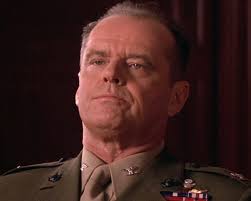
“You can’t handle the truth,” Jack Nicholson growls as Col. Jessup in “A Few Good Men.” But my narrator Charlie Mears tries to.
From the first chapter of the novel Forsaken, its young narrator, newspaper reporter Charlie Mears, is preoccupied with truth.
He wonders if the tale an old neighbor spun about the 1831 slave insurrection in Southampton County, Virginia, is true. He even wonders if his own story of Virginia Christian’s trial and execution is true.
Sometimes what Charlie discovers bewilders him. And that was my experience researching this book.
The issue arose for me long ago, during my undergrad days at the University of Virginia. As an upperclassman, I served as a tutor-counselor for African American students who’d been admitted to the University contingent upon their completion of a “transition” program the summer before their first academic year.
I tried to imagine what it felt like for those black students to attend a school founded by the man who authored the Declaration of Independence, proclaimed in its preamble that “all men are created equal,” but had built and operated his mountain plantation Monticello with slave labor, had kept when he was a widower a slave concubine and fathered children by her, and had abandoned the woman and their children to bondage when he passed from the earth.
For those students I tutored and lived with in the dorms, what was the truth about Mr. Jefferson? Had the crushing debt on his estate prohibited him from freeing his slaves, giving away valuable chattel? Was he simply a hypocrite? Or did he view African Americans as creatures not quite human, not worthy of the endowment of “certain unalienable rights”?
None of the answers offer comfort, then or now.
Even more bewildering was the University’s intellectual and medical legacy in the segregation and eugenics movements of the early twentieth century. Names engraved into plaques or emblazoned on façades I saw walking to class had written about “the Negro problem” and performed surgeries to maintain “racial purity.”
Maybe Col. Nathan Jessup, Jack Nicholson’s character in A Few Good Men, was right. We can’t handle the truth. We look away.
Proud of the Old Dominion where I had grown up, proud of the University that had opened my eyes to the world, I was ashamed of what my research had discovered.
But Charlie Mears refused to look away from injustice. And I knew I owed that to him.
Well said. Ross. As children of the South, we have had to hack away at the Gordian knot of our heritage. FORSAKEN is major contribution to a clearer understanding of our past. Heroes arrive under wildly varied circumstances; how fortunate we are that your narrator Charles Mears has stepped up.